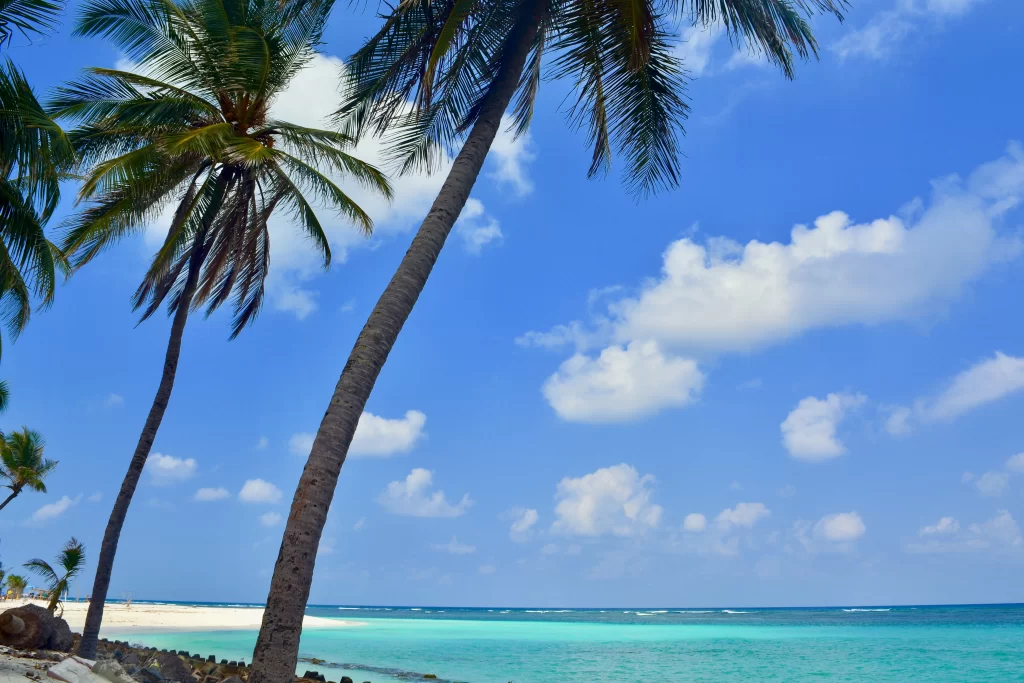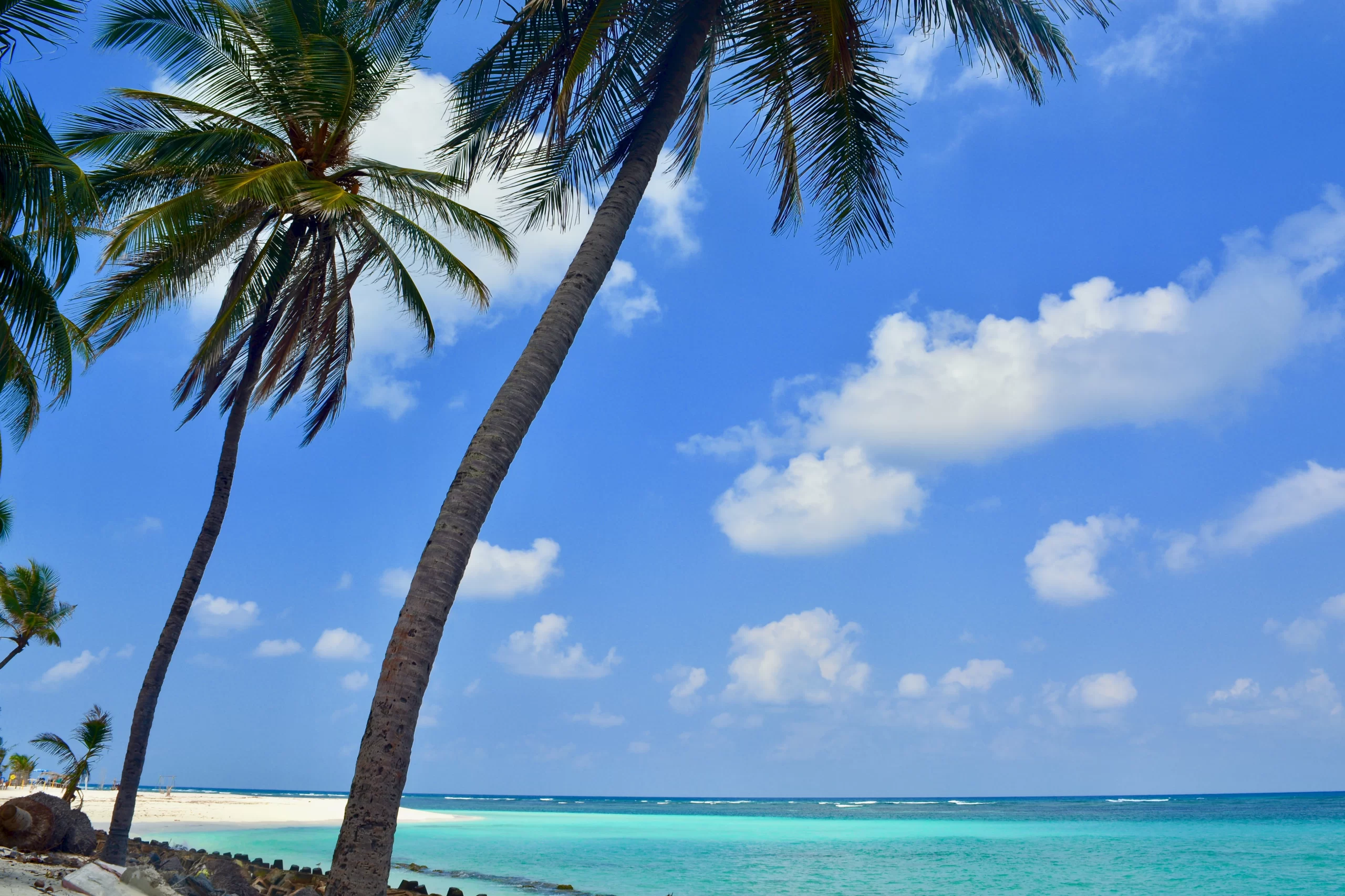Lakshadweep, an Archipelago of Serenity and Adventure
Nestled in the Arabian Sea, Lakshadweep is a cluster of islands known for their untouched beauty and vibrant culture. This year, as travel becomes more accessible and the world reconnects, Lakshadweep stands out as a must-visit destination. Here are seven compelling reasons to plan your trip to this exquisite archipelago. Before that, let’s look into its vast history

The History of Lakshadweep Islands: A Brief Overview
Ancient and Medieval Periods
- Early References and Mythology: Lakshadweep’s history is shrouded in mythology and early maritime narratives. Some legends link the islands to the Ramayana and Mahabharata, two epic narratives of ancient India.
- Early Settlers: The earliest settlers are believed to be from the Malabar Coast of Kerala. They were primarily fishermen and sailors, drawn to the islands’ abundant marine resources.
- Buddhist Influence: Historical evidence suggests that Buddhism prevailed in the region up until the 6th century AD.
- Chola Dynasty: The Chola dynasty, a significant power in South India, had influence over the islands during their maritime expansions between the 9th and 12th centuries.
The Arrival of Islam and Colonial Period
- Conversion to Islam: The 12th century marked a turning point with the arrival of Islam. It’s believed that Saint Ubaidullah, while en route to Mecca, landed on the islands and converted the inhabitants to Islam.
- Portuguese Control: The 16th century saw the arrival of the Portuguese, who controlled the islands for a while, significantly impacting the trade routes.
- Colonial Struggles: The islands were also influenced by the power struggles between various colonial powers, including the British and the Dutch.
British Colonial Era
- British Annexation: The islands came under British control in the late 18th century. They were administered as a part of the Malabar district of the Madras Presidency.
- Economic and Social Changes: Under British rule, the islands underwent significant social and economic changes. Coconut cultivation became the mainstay of the economy.
Post-Independence Era
- Integration with Independent India: Post-1947, when India gained independence, Lakshadweep became a part of the Indian union.
- Union Territory Status: In 1956, Lakshadweep was constituted as a Union Territory, and significant developmental activities began, including the establishment of schools and healthcare facilities.
Modern Times
- Economic Development: The economy of Lakshadweep has traditionally been based on fishing and coconut cultivation. In recent years, tourism has emerged as a significant sector.
- Environmental Conservation: The unique ecology of the islands has led to the implementation of strict environmental regulations to preserve the region’s natural beauty and biodiversity.
Cultural Evolution
- Lifestyle and Traditions: The lifestyle and traditions of the people of Lakshadweep have evolved over centuries, blending indigenous practices with influences from mainland India and maritime visitors.
- Languages and Religions: The primary languages spoken are Malayalam, Jeseri (Dweep Bhasha) and Mahl. The majority of the population practices Islam, with the culture deeply influenced by this religious heritage.
Challenges and Future
- Environmental Challenges: The islands face significant environmental challenges, including the threat of climate change and rising sea levels.
- Socio-Economic Issues: While tourism has boosted the economy, it also poses challenges in terms of balancing development with environmental sustainability.
The history of Lakshadweep is a tapestry of myths, maritime adventures, cultural exchanges, and colonial struggles. From its early settlers to the modern era, the islands have witnessed significant transformations while maintaining their unique cultural identity. Today, Lakshadweep stands as a testament to resilience and cultural richness amidst the challenges of modernity and environmental vulnerability.
1. Pristine Natural Beauty
Lakshadweep, translating to ‘a hundred thousand islands’ in Malayalam, is a tropical paradise. Each island, embraced by emerald green waters, boasts powdery white sandy beaches and lush coconut groves. The serenity of these islands offers a perfect escape from the frenetic pace of modern life.
2. A Haven for Marine Life Enthusiasts
The islands are encircled by coral reefs, providing sanctuary to a diverse array of marine life. The clear waters offer excellent visibility for snorkeling and scuba diving, allowing visitors to immerse themselves in the underwater world. Witness vibrant coral formations and encounter a variety of marine species, from colorful fishes to sea turtles.
3. Cultural Melting Pot
Despite their geographical isolation, the islands of Lakshadweep are rich in cultural heritage. Influenced by South Indian and Mappila traditions, the local culture is a tapestry of different customs, languages, and cuisines. Traditional dance forms like Kolkali and Parichakali are a must-watch for their rhythmic beauty.
4. Adventurous Water Sports
For thrill-seekers, the islands offer a plethora of water sports. Engage in windsurfing, kayaking, or jet skiing. For those who prefer a more relaxed experience, glass-bottom boat tours provide a glimpse into the mesmerizing underwater life without getting wet.
5. Unspoiled and Exclusive Tourism
Unlike mainstream tourist destinations, Lakshadweep island is relatively untouched by commercial tourism. This exclusivity means fewer crowds and a more authentic experience. The islands provide a unique opportunity to disconnect and rejuvenate.
6. Commitment to Eco-Tourism
Lakshadweep is a delicate ecosystem that the local administration is committed to preserving. The focus on eco-tourism ensures that your visit is sustainable and helps in conserving the islands’ natural beauty and cultural heritage.
7. Ease of Accessibility
Lakshadweep isn’t just a destination; it’s an experience that offers a blend of tranquility, adventure, cultural richness, and natural beauty. As you plan your travels for the year, consider this hidden gem of India for an unforgettable journey. Whether you’re a nature lover, culture enthusiast, adventure seeker, or just in need of a peaceful retreat, Lakshadweep awaits with its myriad offerings.






